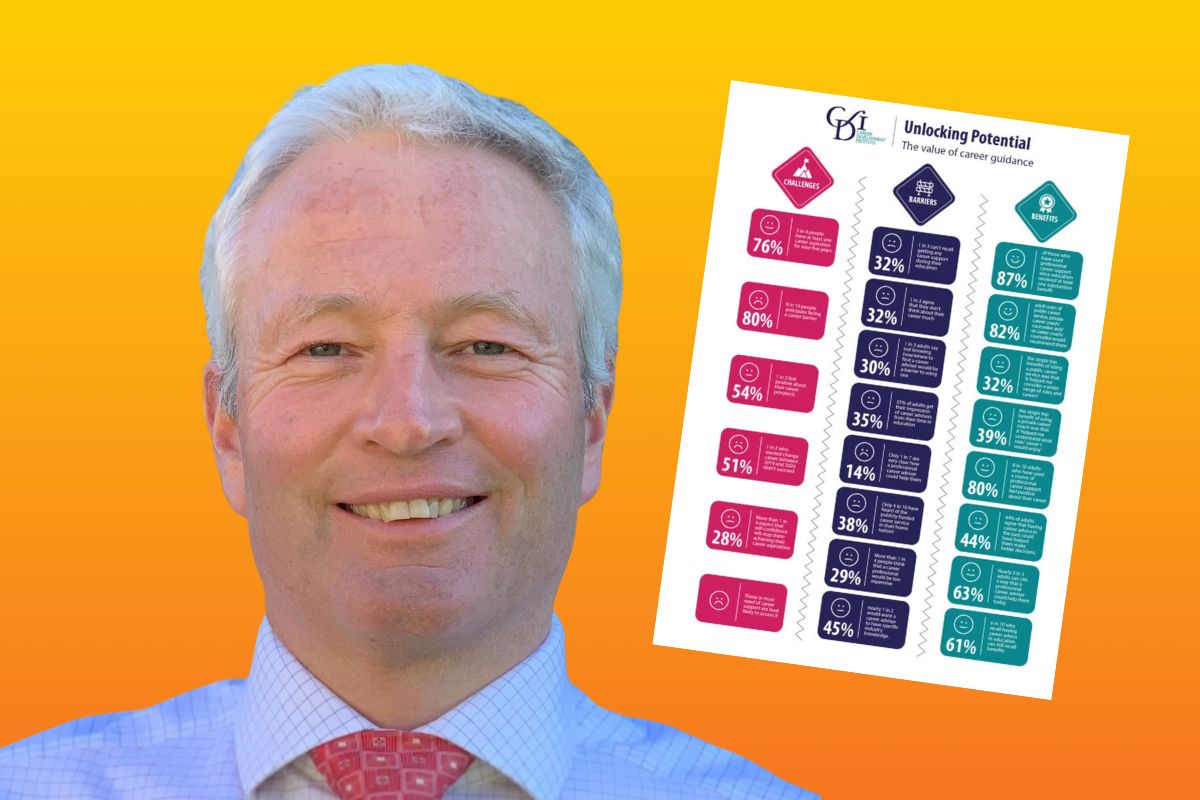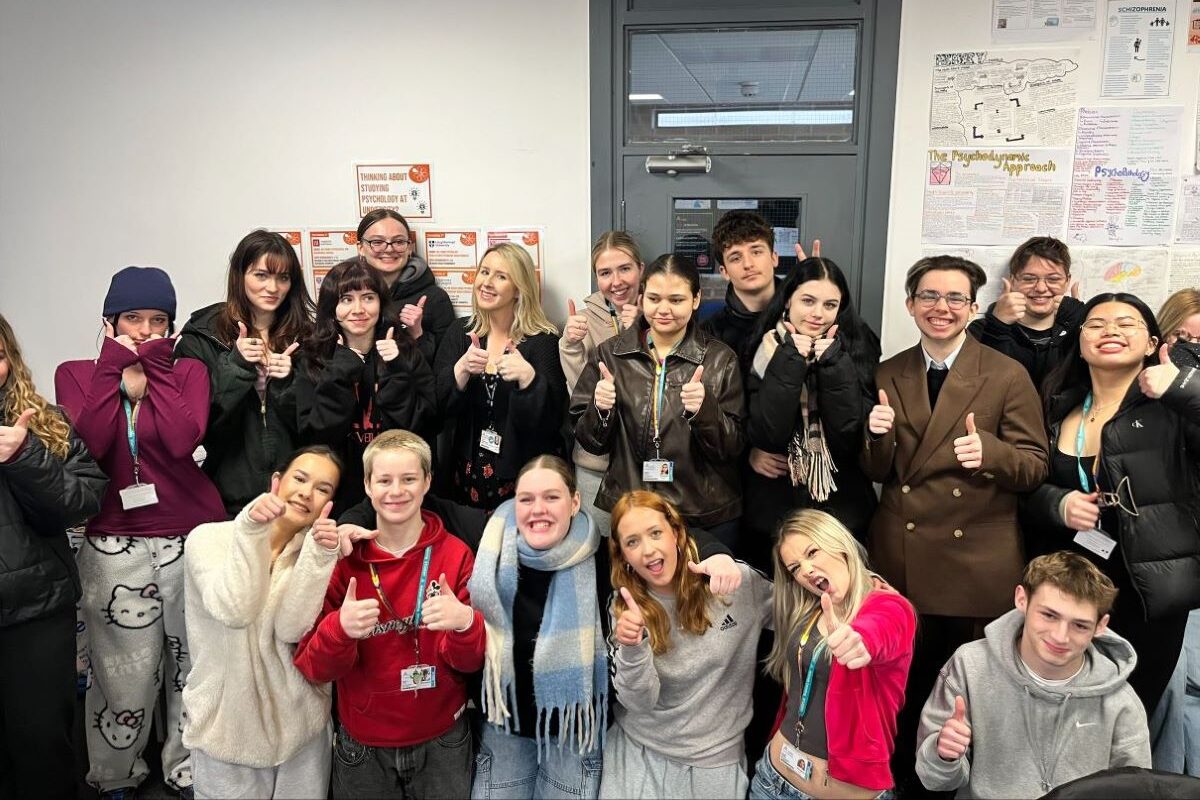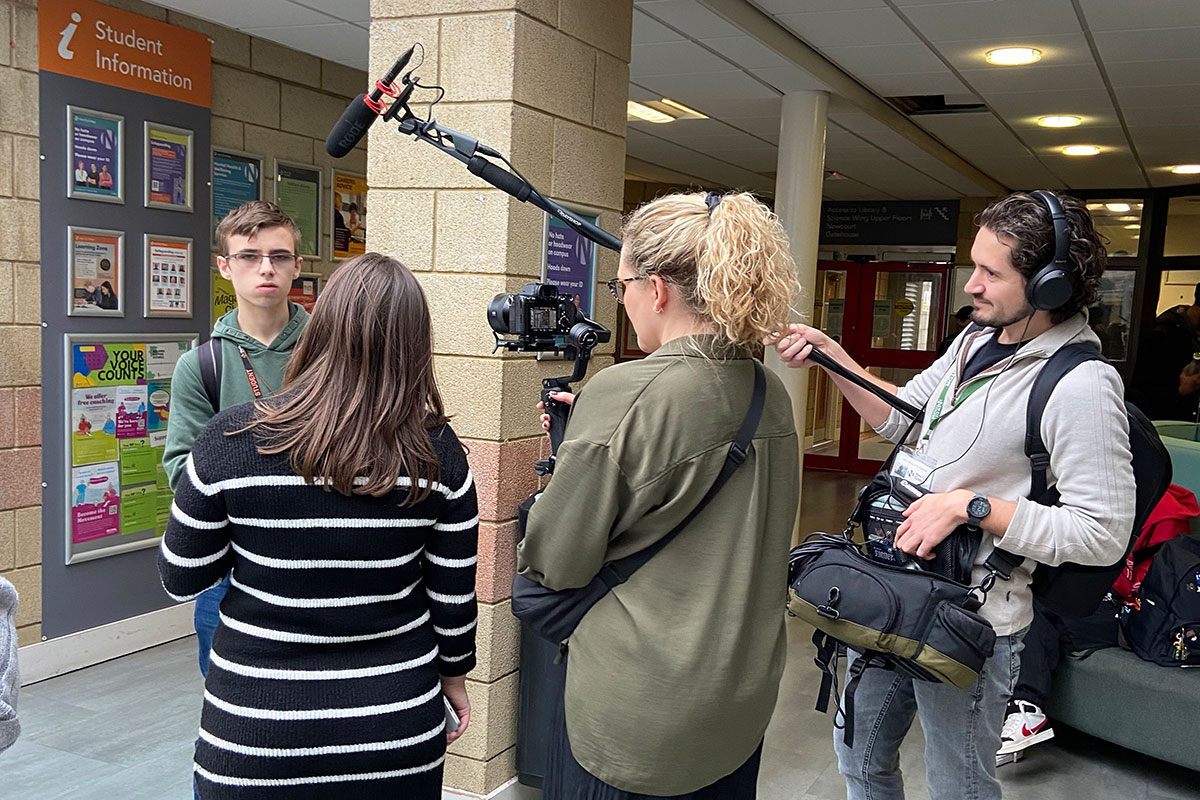ChatGPT in Education: The Future or a Fad?

If AI is here to stay, can ChatGPT be used responsibly in education – how do we ensure best practice and damage control any limitations to learning?
ChatGPT in Education: The Future or a Fad? Four key avenues ChatGPT has the potential to transform education.
There are certain moments in life that make you stand up and take notice – moments that you’ll always remember where you were and what you were doing when they happened…
When Boris told us we were all going into lockdown. When Aguero scored that goal to win Man City the Premier League. And of course, my personal favourite – when Craig won the first ever series of Big Brother! I also believe the launch of ChatGPT will also go down as an historic moment in history.
I remember being sat watching the football with a couple of friends a few months ago when out of the blue one of them asked, “Have you seen this ChatGPT thing? You can literally ask it anything and it will give you the answer!”
My response, which felt like the right one at the time was, “isn’t that what Google does?” I know it’s a hot topic at the moment, but for anybody who has had a go on ChatGPT, you’ll know how far off the mark I was. For anyone who hasn’t, put it this way, ChatGPT makes any research tool you’ve previously used seem instantly ancient!
What is Chat GPT?
The GPT in ChatGPT stands for Generative Pre-Trained Transformer. A Chat Generative Pre-Trained Transforment, aka GPT is a language model that is autoregressive and relies on deep learning to provide human-like answers to a query.
Now what you can do with ChatGPT is ask it to regenerate their response. This means that you effectively ask the same question again and it gives you a different answer. Once I’d had a chance to understand what Chat GPT was all about on the surface I immediately found myself asking the question…
Where was this when I was doing my dissertation?! I could’ve got through that in a matter of minutes instead of the weeks/months of no sleep! But then I started to think about if I’d actually had ChatGPT to hand – how would I have actually learnt what I was writing about if there was a tool that just did it all for me?
Second nature technology in the modern world
There are ample of examples of technological ‘tools’ we use in the modern world that most of us wouldn’t batter an eye lid at these days such as, when splitting a bill at a restaurant and getting your phone calculator out to work how much everyone owes rather than working it out in your head – it’s become normal and we wouldn’t consider this ‘cheating’.
Similarly with Auto-correct and predictive text… how many of us would get through life without this? Predictive text probably makes the majority of us look more intelligent than we actually are – but it’s just part of the modern busy lives we all lead.
Granted these examples are not directly educational so, moving onto exams – why do we still often have to write essays when in everyday life we use technology to type – computers, phones, iPads. Is there going to be a way to incorporate things like chat GPT into exams. I think it could even become a skill to ask Chat GPT the right questions.
Is history repeating itself?
Now I want to take you back to an article from the Daily Mail on 5th December 2000, with the headline, ‘Internet may be just a passing fad as millions give up on it’.
Reading this article and to see that the date on it was only just over 22 years really does open my mind to so much more and makes me question what any of us really know about what the future holds…
The article mentions that; ‘Researchers found that millions were turning their backs on the world wide web, frustrated by its limitations and unwilling to pay high access charges. They say that e-mail, far from replacing other forms of communication, is adding to an overload of information.’
“It estimated that in Britain alone there could be more than two million people who regularly used the Internet but had now given up.”
It really is incredible that isn’t it – two million internet users had given up on the internet back in the year 2000. Is this potentially the stage we’re at now with ChatGPT – a lot of us have had a play on it but have we given up… and is that giving up just temporary?
Considering the article I’m referring to was written in the year 2000 – and the internet was born in the 1960’s, I find it crazy that around 40 years later they were still doubting it! It really does pose the question, is this just the start of Chat GPT – and will it take years to be take off?
How can Chat GPT be embedded into education today?
In our core educational sector as it stands today, I believe it has the potential to transform education in four key ways:
- Facilitating personalised learning
- Automating administrative tasks
- Improving student-teacher interactions
- Learner accessibility
Let’s find out why…
Firstly, personalised learning ChatGPT can suggest personalised learning resources, such as articles, videos, and exercises, based on a student’s interests and learning preferences. Thinking about this, along with how ChatGPT can support learners with the tailored real-time feedback it would be useful to think about how its use in education. There are many edtech suppliers out there that have e-learning resources, assessment technology and learning platforms where ChatGPT features such as immediate personalised feedback for initial and diagnostic assessments, or only recommending learners use relevant learning resources could definitely free up a lot of wasted time for learners and also help keep learning focused.
Automating administrative tasks is also something we all could do with some support on. From a tutor and learner perspective, ChatGPT can automate certain aspects of the learning process, such as generating mock assessments and providing automated feedback, this could allow for more personalised coaching sessions by tutors. We see it all the time now when speaking with all types of providers, their main issues are tutor capacity and finding technology which will enable the need for less delivery and marking.
Improving student-teacher interactions – it’s really exciting to see the initial ways in which ChatGPT could improve interactions between students and teachers by enhancing engagement with interactive learning experiences with games and quizzes and this could help keep students motivated.
And finally, Learner accessibility is a really big way things will improve for the better with ChatGPT by offering accessibility features such as green readers, captions and alternative text descriptions, which can make learning materials more accessible for students with disabilities. It can also provide text-based communications, which can be helpful for students with hearing impairments or language barriers as well as being great for students who feel uncomfortable speaking up in class!
So, although this is all very new, there are some fairly obvious ways we can look at to ensure best practices when using ChatGPT in education.
How could this affect Ofsted?
There could be several concerns about how Ofsted will evaluate Chat GPTs use and how they will deal with all of this and the prospect of new regulations being introduced in the coming years.
Some potential concerns could include:
- Evaluating Quality – with ChatGPT being used to assist in teaching, there may be concerns about how Ofsted will evaluate the quality of the teaching and the role that ChatGPT plays in the learning process.
- Student Engagement – as one of the key factors in Ofsted’s evaluations there may be fears about how ChatGPT will impact student engagement, particularly if it is used as a replacement for human-to-human interaction.
- Accessibility – Ofsted is responsible for ensuring that all students have access to high-quality education but there may be concerns about how Ofsted will evaluate the accessibility of ChatGPT for students with disabilities, and whether providers are providing appropriate accommodations.
- Equality – without going into much more detail, data privacy along with bias and fairness are two other areas which Ofsted will have a strong focus on. The limitations and potential biases of the technology must be understood, and steps should of course be taken to mitigate them. It also goes without saying that it’s essential to prioritise privacy and security concerns and ensure that student data is protected.
By addressing these concerns, schools and colleges can help to ensure that they are providing high-quality education that meets the needs of all students.
How can edtech providers use Chat GPT effectively today?
Looking at this from an FE Tech/learning tech point of view, we must to consider how edtech providers can start to use Chat GPT effectively from today.
There’s no doubt that in theory, impact on student engagement should be improved as ChatGPT can provide personalised, interactive and engaging support for students – increasing their motivation and involvement in learning. This could then have an effect on retention rates for providers and academic performance improving. Colleges will need to consider integrating ChatGPT with their current LMS – and how this would be done in an impactful and secure way alongside a seamless API integration.
As ChatGPT can automate certain aspects of the learning process, such as generating mock assessments and providing automated feedback, this could allow for more personalised coaching sessions by tutors. There’s always that fear from tutors about learning technology replacing them but I really think this could be an exciting step to making their lives so much easier and improving the learner experience!
And of course, by using ChatGPT, providers will be able to prove to Ofsted that that they are a forward thinking provider but also in turn attract students who are interested in innovative educational institutions.
Undoubtably, Chat GPT has the potential to transform education by facilitating personalised learning and improving student-teacher interactions, however, its use in education requires careful consideration of ethical and practical issues to ensure that it is used responsibly and effectively.
Remember, using a calculator in an exam or being able to take a book into an exam was originally frowned upon. Now the education sector recognises that it is a skill in itself to be able to use these tools. I personally believe that ChatGPT is the future, if used in the right way… and has the potential to ignite positive change in the education sector for many years to come…
By establishing clear guidelines, involving all stakeholders, and regularly monitoring its outputs, we can ensure that Chat GPT is used to enhance, rather than replace human teaching and interactions in education.
By Oli Kristall, Partnerships Manager at FE Tech
An organisation that champions the best e-learning solutions and stories within post-16 education. Membership, advice and guidance free for everyone at www.fetech.co.uk/register











Responses